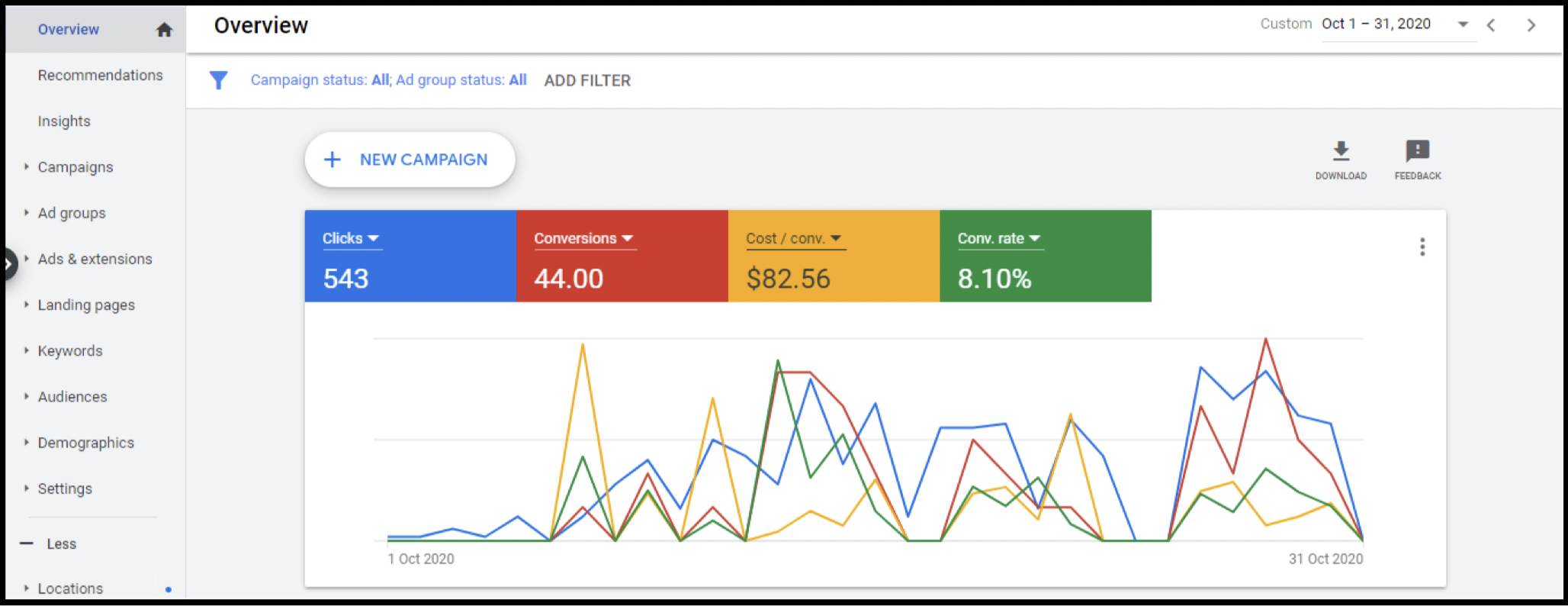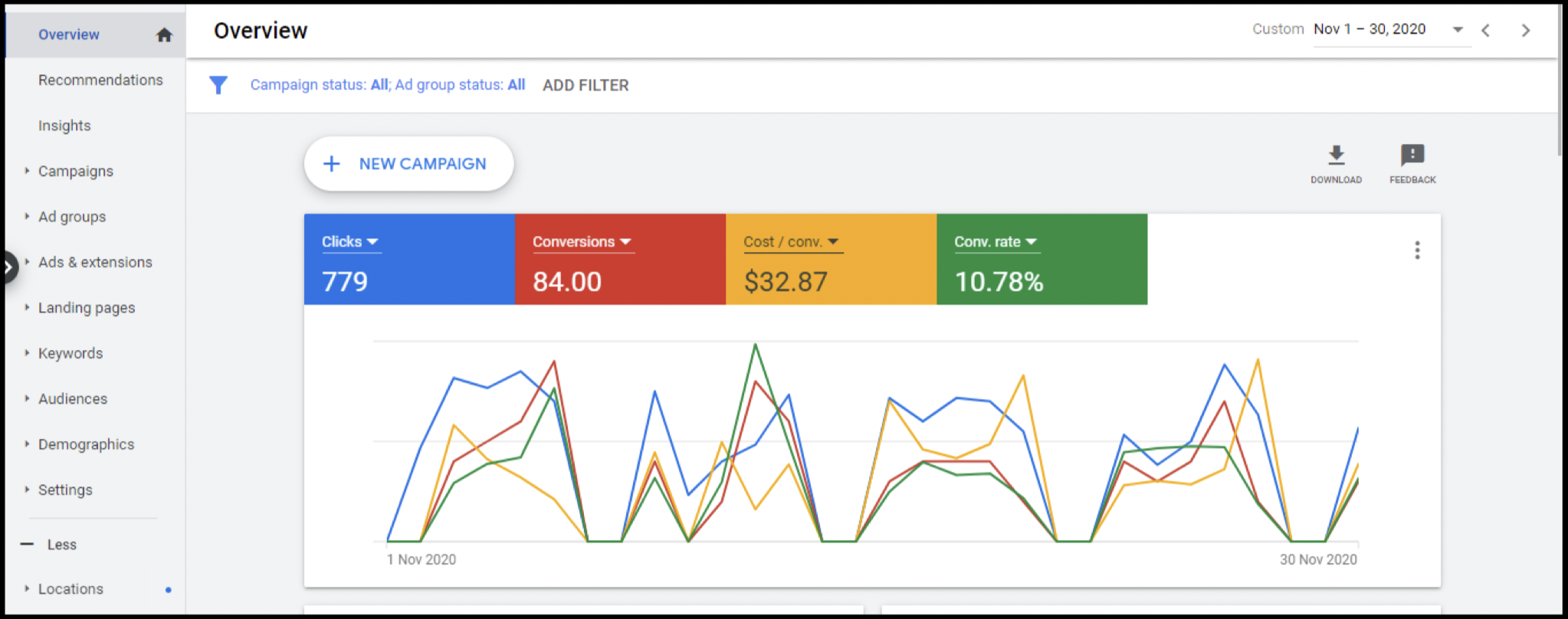Best Tips to Optimise Google Ads
Google advertising is an effective way to help potential clients find you. The reach of Google Ads makes it a valuable tool across numerous industries. A measure of success lies in factors such as the target audience and your ad budget. However, you can get the best return on your investment (ROI) by implementing numerous methods to optimise your Google Ads.
Key Take Away:
Regularly examine how your Google Ads perform by checking the structure of your ads, doing ad copy testing, and doing a regular audit of search terms. You will also want to do regular keyword testing as well as negative keyword searches to filter your results.
How Google Ads Works
At its most foundational level, Google Ads works using a competitive pay-per-click (PPC) auction format. Choose the keywords you want and bid on them based on how much money you are willing to bid on a specific keyword to be used in a search query. If you have the winning bid, you will pay the agreed-upon amount each time a potential customer uses the word in a search.
How Effective is Google Ads?
Google Ads boasts a high rate of effectiveness and is a tremendously popular advertising option, as evidenced by the fact that 94% of all searches take place on a Google property. Clearly, the reach of Google Ads is unrivalled by any other search engine. A 2024 study found that approximately 80% of businesses globally utilise Google Ads for their pay-per-click campaigns. Google Ads has a 61.73% market share in the PPC market.

Is Google Ad Manager the same as Google Ads?
The pair targets different areas of focus, and they are not one and the same. Google Ads centres on facets such as campaign setup, audience targeting, and performance optimisation. It is an economical way for businesses of all sizes to reach a virtually unlimited and carefully targeted demographic.
Google Ads Manager focuses on ad inventory management, yield optimisation, and audience insights. The system supports multiple ad networks, including Google AdSense and Ad Exchange. Additionally, Ads Manager supports third-party networks and exchanges. It is also helpful in increasing ad revenue. This Google feature is often best utilised by large companies and those who have significant direct sales.
How Much Do Google Ads Cost?
There is no single dollar amount to quote regarding the cost of Google Ads. Six factors influence the cost of this advertising.
- Industry – Typically, the more competitive your field, the more expensive your ads.
- Market Demand – Numerous factors drive the market demand. For example, global events, consumer trends, and even seasonal shifts have the potential to impact demand.
- Customer Life Cycle – This refers to how long your customers take to purchase your product or service. So, the longer the life cycle, the more you can expect to pay.
- Geotargeting – When you use geotargeting, your ads will appear for people in a specific geographical area. Where you target impacts the price of your ads.
- Type of Ads – Google offers a variety of ad types, and the kind of ad influences the cost. For example, running a video ad on YouTube will cost more than a search ad.
- Keywords – Keyword pricing is not complicated—the more sought-after the keyword, the higher the price.
Because of these and other variables, pinpointing precisely how much a Google Ad costs is tricky, at best. However, Demandsage reports the average cost per click (CPC) for Google Ads is $4.22.

How to Optimise Google Ads
Your advertising must be optimised regularly to see continuous growth. Monitoring and managing your ads is vital and needs to occur permanently. There is no way to avoid this; ignoring your site will lead to fewer customers and stalled sales.
There are several ways to ensure your site is optimised. These include,
- Long-tail Keywords- Carefully choosing your keywords is vital to your advertising success. One way to optimise with keywords is by adding long-tail-keywords, which are between three and five words. These improve search because they are more specific than short-tail keywords. Additionally, you will have fewer competitors for the words.
- Utilise Negative Keywords- These are words or phrases you do not want your ad to appear when searched. By eliminating specifics that do not fit, your ad will not be a part of that auction. *For example, if you are a doctor whose practice focuses on geriatric cardiology, you will not want words like “family physician” or “family practice” in your ads.*
- Focus on Vital Metrics
- Conversions
- Return on ad spend
- Cost per Conversion
- Use Assets – Once known as ad extensions, Assets allow you to expand the information a customer sees. These are simple yet powerful ways to connect with a specific customer collective. Examples of various assets include.
- Location Extensions – These add your address to your ad so customers can find your storefront. Often, a link to Google Maps is included for easy navigation.
- Call Extensions – Your phone number is added to your ad, and mobile versions will feature a link to call you directly.
- Price Extensions – Attract price-conscious consumers by posting your products with price points.
- Sitelink Extensions – You can help your customers find what they want on your website by adding links to specific pages.
- Look at Ad Quality – A well-written ad attracts customers and ensures a high ad score from Google. There are several details to use in your ad to improve its quality score.
- Add a call to action (CTA) and details about your business.
- Place keywords in your headlines
- Include promotional offers in your ad
- Provide details about your company, products and services
Australia’s Google Ads Experts!
You can focus on several metrics to see any shortcomings in your ads with Google. Keep track of relevant keywords, optimised landing pages, and the most frequently used search terms. Make checking on your Google Ads a regular event on your calendar. Google Ads offer tremendous potential. However, these are not set-it-and-forget-it techniques and need adjustments periodically.
The longer you work with Google Ads, the more insight you will gain to help keep you ahead of the competition. Getting the most out of your ads on Google will require time and know-how. This is why you should consider working with J-Digital. We have the skills and experience to help you fine-tune your advertising and get the most significant ROI. Please feel free to contact us and discover the many ways we can help you exceed your expectations.
